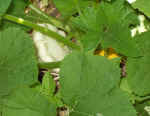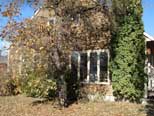|
MSc in Integrative Ecosocial Design |
 |
 |

Richard Kühnel |
|||
| |||||||||||||||||||||||||||
| <<<previous page | next page >>> | |||
|
Navigation Resources Bibliography Photos Drawings Appendix Journal Forum Presentation Resume Portfolio Help | Survey
Learning General What I want to learn through this program and my project extends in many ways what I want to learn from life. I want to learn living life as a fully conscious being with the highest qualities of the heart, soul, spirit, mind and body. I want to learn to be consistent in action, thinking and feeling and create a way of living that is truly sustainable, restores and revitalizes, where appropriate the natural resources and inspires others to do similar, appropriate for their situation. I want to learn how to walk gently and harvest respectfully in all areas of life. I want to learn how to give and receive. I want to fulfill my human potential and my life to be an expression of the philosophy "For the highest good of all". I want to grow and learn, study and have fun. Recently I have made a more comprehensive list of my more specific learning expectations in regards to the IESD program. Ecosocial Design While a Google search for "social ecology" returns hundred thousands of hits and "ecosocial" still returns 10,000s, a search on "EcoSocial Design" returns about 199 hits (as of March 31st 2007), many of them from the Gaia University web site, and the rest of other people that either have been publishing information on GU programs, are affiliated with GU or are pursuing a degree with GU. During my work with the Inland Northwest Eco-Center, it became very clear to me that besides ecological design, also social and personal "design" are necessary for a long term future of humanity on this planet. If we do not know how to really communicate to each other, if we cannot make decisions and agreements that we all honor and feel good about, we will not be able to create a world we all want. Another learning outcome I am expecting to have is a pretty clear understanding of a sustainable way of living in an urban residential situation, at least for comparable weather, landscape and cultural situations. How to achieve such a type of lifestyle over time, within the existing built, planned and regulatory framework. That I know about the difficulties and the challenges, as well as the possibilities and the joy. I will have learned how to apply some modified form of a complete design cycle in the field of sustainability. Within the survey phase, possibly often a starting point of the design cycle, after the definition, clarification what the object or objective (including finding the objective) of the design is, I will have used the SADIE (this is 6MBs!) - model of design and expanded as needed and applied in a fractal manner (see Designing)- the survey phase of the SADIE model itself follows that model and so on. Putting in words and trying to put it into a form that others can relate to, will improve my skills of writing, organizing and presenting material in the area of ecosocial design in English. | |||
| <<<previous page | next page >>> | |||
|
Copyright © 2002 - 2011 Richard Kuhnel
|